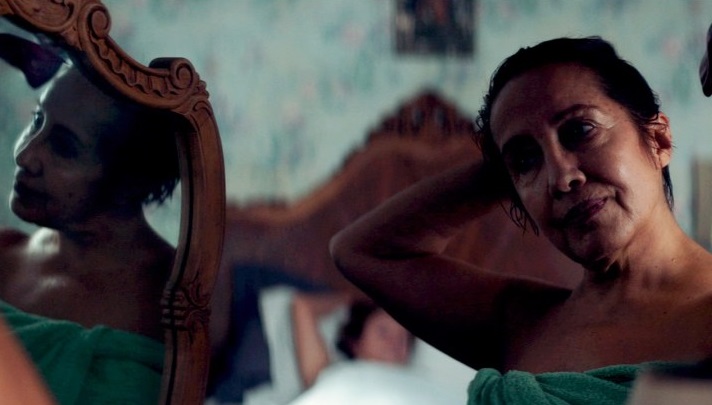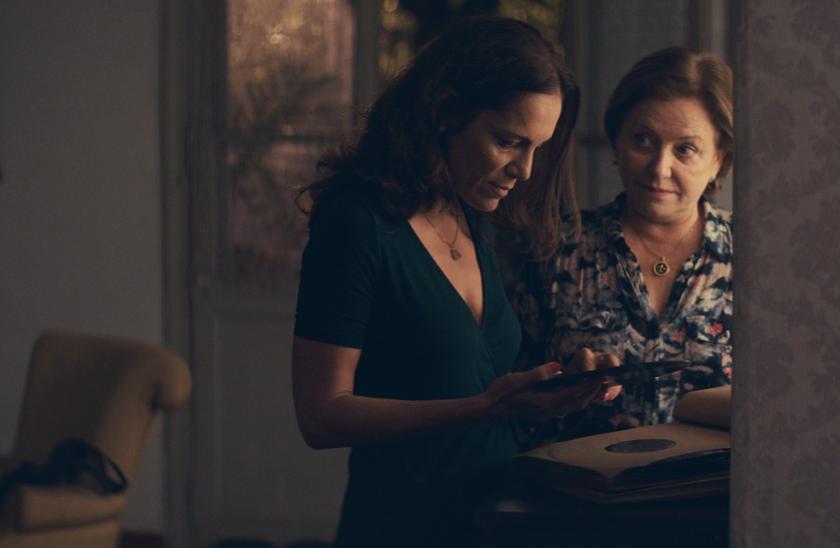This first feature from Paraguayan director Marcelo Martinessi is a delicate study in confinement, and of how the chance of freedom can bring an equal sense of exhilaration and apprehension. The two heroines of The Heiresses, Chela (Ana Brun) and Chiquita (Margarita Irún), are longterm lovers who inhabit an environment of familiar privilege and comfortable claustrophobia. When confronted by new circumstances that disrupt their long-established private world, the former faces an opportunity for change that may look set to break her, but actually has the potential to make her anew.
The couple live in a spacious but heavily gloomy Asunción villa, Chela’s family home, in an old-style district of the Paraguayan capital. Their life of leisure, defined by a group of women friends in similar positions (men are almost completely absent from this world) and by the maid who looks after them, seems as elaborately ordered as the bedside tray that has to be carefully laid out for Chela every morning. It seems like a timeless hangover from a previous age but the couple has fallen into debt – Martinessi’s script never elucidates how or why – and their world is in jeopardy.
Their new circumstances are forcing them to sell off some of their most precious possessions, a procedure that is carried out with strict decorum, purchasers shown around by the maid while Chela watches from behind a screen. Much more dramatic, however, is Chiquita's imminent confinement to prison on charges of fraud (pictured below, Margarita Irún) . One of the film’s strongest elements is its establishment of character, defining the more extrovert Chiquita as the dominant force in the relationship, her forthrightness set against the apprehension and reticence of her companion. The reaction of the two women to the prison environment is characteristic, its noisy unruliness a world in which Chiquita quickly finds herself at ease, while it clearly intimidates Chela even more than having to drive herself there (in an ancient Mercedes that is another family hand-down). Despite the attentions of a well-meaning friend who is trying to have Chiquita released, the already limited boundaries of Chela’s world look set for further contraction.
The reaction of the two women to the prison environment is characteristic, its noisy unruliness a world in which Chiquita quickly finds herself at ease, while it clearly intimidates Chela even more than having to drive herself there (in an ancient Mercedes that is another family hand-down). Despite the attentions of a well-meaning friend who is trying to have Chiquita released, the already limited boundaries of Chela’s world look set for further contraction.
That’s until a neighbour, the mordantly bitchy Pituca (María Martins), accosts her with a request – more a command, actually – to be driven to her bridge party; Chela complies, and uncharacteristically accepts the money offered for the ride. Soon she has become an informal taxi-driver to a whole gaggle of acerbic middle-aged ladies: any judgment of the privileged self-centredness of their world that Martinessi may evince is moderated by his relish of their eccentricity.
When Chela makes the acquaintance of the younger Angy (Ana Ivanova), the daughter of one of this coterie, her horizons start to be stretched – literally so, when she agrees to drive her regularly to a more distant destination – and a subtle transformation begins as she is drawn out of herself, starting to pay to herself in new ways. It’s affecting, and a performance of rare accomplishment from Brun (in her first screen appearance after a career in theatre) for which she won the Berlinale’s Best Actress award this year.
It may seem a rather hermetic drama played out on a small scale, but the resonances of The Heiresses surely run deeper, not least for a society that is itself emerging from decades of repression. Martinessi doesn’t need to stress such aspects, however, just as he doesn’t need to labour the gay element in his film, or indeed emphasise the aspects of class that so clearly underlie the world that he depicts. His accomplishment is to create this particularl world in minute totality, with an apparent ease that belies the scale of the achievement. His cinematic horizons can only broaden after this, in every sense: defintely a director to watch.
Overleaf: watch the trailer for The Heiresses















Add comment